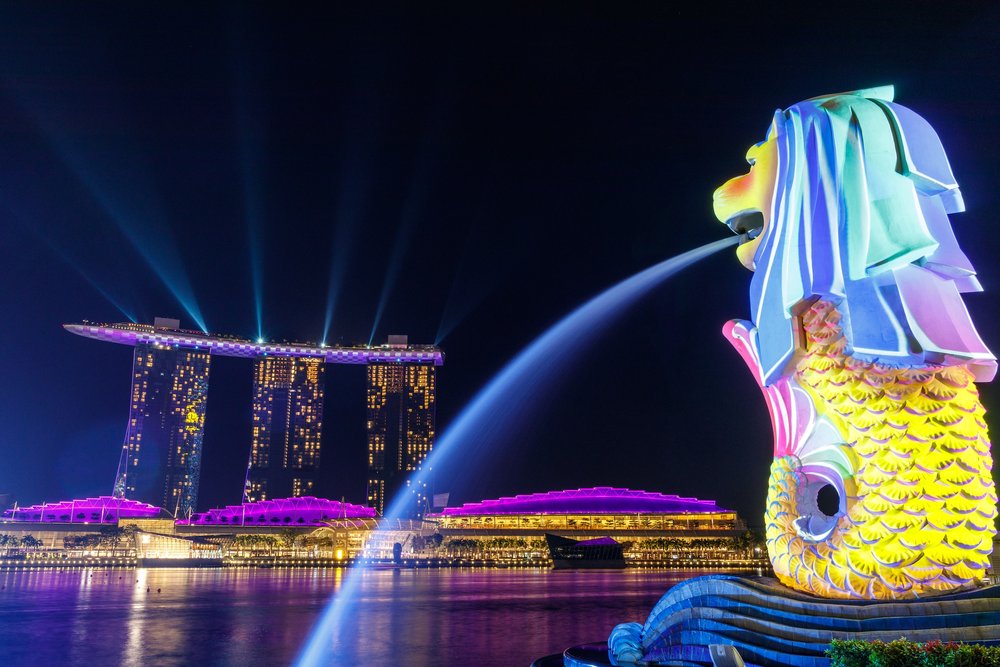If you have recently been offered a job in Singapore or are considering moving there in search of employment, there are certain things you need to know before you do.
Nicknamed the “Garden City”, Singapore combines tropical environment, skyscrapers, and good food with traditional Chinese, Malay, and Indian influences. It may have previously been a British trading colony, but it is now a global hub for finance and commerce, home to people of many different cultures, and has one of the busiest ports in the world. It is no wonder that thousands of expats relocate there every year and are very happy with their decision.
Let’s look at some things you need to know when moving to Singapore.
Things You Need To Know When Moving To Singapore
1) The Language
English-speakers have a foot up while planning their relocation to Singapore, it being the language of commerce and trade. Alongside English, Singapore’s official languages are Malay, Mandarin, and Tamil. However, you’ll soon become aware of “Singlish”, the country’s unofficial vernacular and the neutral language point of contact between its many ethnic groups.
2) Ease of Travel
Singapore is a city-state that is just slightly larger than tiny Malta, so it makes sense that cabin fever can develop. Thankfully, it’s easy to quell. Singapore’s Changi is one of the world’s great connecting airports, with planes regularly departing for other countries in Southeast Asia, Asia, and other parts of the world.
3) The Humidity/Tropical Climate
At only one degree north of the Equator and with two monsoon seasons, You will need to acclimate to living in hot and damp conditions. To avoid becoming dehydrated, it’s crucial to keep a water bottle on you at all times and to consume plenty of fluids. You will need a hat and sunscreen when it is sunny but also when it is cloudy as the sun is so fierce it can penetrate the clouds. To avoid the heat, many expats stay inside in air-conditioned residences but it is crucial to get outside as often as you can. Carry an umbrella with you when you do venture outside because rainstorms can come on suddenly and heavily.
4) Shopping
Singapore offers a lot of possibilities for shopping therapy. Its profusion of air-conditioned malls is a popular escape to dodge the heat, with store after store of electronics, apparel, premium brands, skincare, books, homeware, records, and more. Not a lover of malls? Then venture out to the “heartlands” local settlements where marketplaces are packed with food, knick-knacks, and many other items to explore.
5) Public Transportation
Singapore’s MRT (Mass Rapid Transit) train system is reliable, efficient, and economical with more than 100 stations distributed around the island. However, if you must have a car, you need to keep in mind that you will most likely have to pay many times more for the identical model in Singapore than you would at home.
6) The Expat Bubble
Singapore life is like a resort for those with the means and who want to spend money (think live-in nannies, serviced apartments, and infinity pools). The unbreakable “bubble” that is produced as a result of doing this is a drawback. Not interested in living in an affluent expat bubble? Choose lodgings further out of town, make an active effort to talk to locals, acquire some words in Singlish, eat at hawker (open-air food) centers, take public transport, and join special interest clubs.
7) The Fines
The infamous fines of Singapore do merit more consideration. While they begin reasonably (don’t drink or eat on the MRT, litter, cross the street recklessly, or spit), they progress to more memorable restrictions (no feeding the pigeons, walking around in the nude in your own home, or importing chewing gum). Now that we think about it, we really like the last one. It’s partly responsible for the extraordinary cleanliness of Singapore’s streets.
8) Work
In terms of the industries that are more prevalent in Singapore, they are finance, oil, and business. Obviously, these are jobs you don’t accidentally fall into, which is why many ex-pats are relocated by their existing companies. If you are looking for work online or through an agency, get an idea of your eligibility to work in Singapore via the Ministry of Manpower’s website (where you’ll also discover information on labor practices such as sick days and paid leave) and remember that you can’t apply for a work visa until you have a job offer in place.
9) Food
If you love to eat, you will truly enjoy Singapore. There is a large selection of delectable goodies to work through, from well-known chili crab to more exotic meals like frog porridge and stingray with sambal sauce. Hawker centers and Michelin-starred restaurants are available to choose from depending on mood or budget.
10) Tipping
There really isn’t much of a tipping culture in Singapore since there is already a 10% service charge and 7% GST added to every bill. Of course, if you wish to tip a server at a restaurant for their service, you can. Remember, though, that taxi drivers and other service providers will not expect a tip.
Whether you are looking for cross-country moving services or international relocation to Singapore, CM Relocation offers relocation support services to those looking to move with ease. They are one of the leading locally-owned international moving firms with headquarters in Singapore. They help you through the moving process, including domestic, international, and business relocation support as well as storage options and moving insurance.
For more information on CM Relocation, click here.
